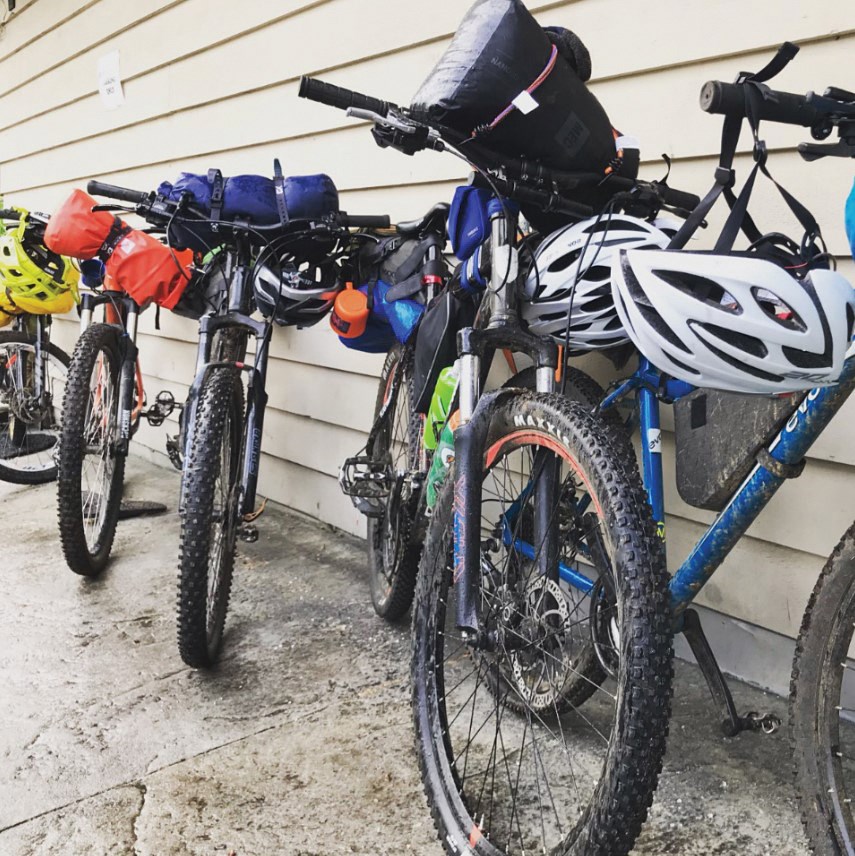The Sunshine Coast’s first Active Transportation Report Card reveals that local commuters are keeping up with others in the province in doing their part to reduce greenhouse gas emissions from transportation.
Transportation Choices Sunshine Coast (TraC) released the document that it developed on Sept. 20. It indicates that 11 per cent of Coast residents use active forms of transportation for commuting. That level is on par with the average for work commuters throughout B.C.
Data on the numbers of cycle commuters, transit users, bikes travelling on the ferry, pedestrian and cyclist vehicle crashes and walking school buses for children are detailed in the single-page report card.
“Our goal is to release this report card every one to two years to quantify the progress our region is making towards a safe and efficient network of sustainable and active transportation options for Sunshine Coast residents,” says Alun Woolliams, president of TraC.
The group plans to share its findings with local government and the provincial Ministry of Transportation and Infrastructure to help make recommendations about future infrastructure investments. It views those steps as important in expanding the network needed to encourage people to consider alternatives to travel by single-occupancy vehicles.
The report card points out that all Coast local government active transportation plans are more than 10 years old. TraC also notes that none of the area’s local governments has an accurate inventory of existing active transportation assets such as separated bike lanes or cycling infrastructure.
“While we are slowly adding to our local active transportation infrastructure, more can be done to encourage Sunshine Coast residents to leave their cars at home and walk or cycle,” says Woolliams. “As more and more people recognize the need to reduce their personal carbon footprint, they will be seeking cycling and walking options that are accessible and comfortable for people of all ages and abilities on the Coast.”
One of TraC’s major means of promoting sustainable transportation is sponsorship of Active Transportation Weeks. This year’s festivities will run from Sept. 25 to Oct. 10. A calendar of events is available at transportationchoices.ca.
Event coordinator Naomi Fleschhut stated in a press release that the single biggest action individuals can take to reduce their carbon footprint is to choose active transportation. She also notes that public participation in the weeks is “a powerful way to demonstrate to our leaders that we want and need more sidewalks, safe bike lanes and increased options for low-carbon transportation.”
Sechelt has completed road shoulder and bike lane sweeping to help active travellers stay safe during the event. In addition, Mayor Darnelda Siegers has plans to showcase some of what her community has already achieved in bike lane and connecter trail construction. On Sept. 25, she will host a nine-kilometre bike tour starting at 11 a.m. at municipal hall (5797 Cowrie St.). The tour will also identify locations where future trail improvements are being planned. Between Oct. 4 and 8, a refreshment tent will be set up from 7 a.m. to 9 a.m. outside the hall, with snacks and free reusable water bottles available for cyclists and walkers who come by the tent during those times.
TraC is a member-based organization that works to support healthy communities and reduce the Sunshine Coast’s carbon footprint. It does this by promoting more active and sustainable transportation alternatives to private vehicles, including cycling, walking, and transit.



